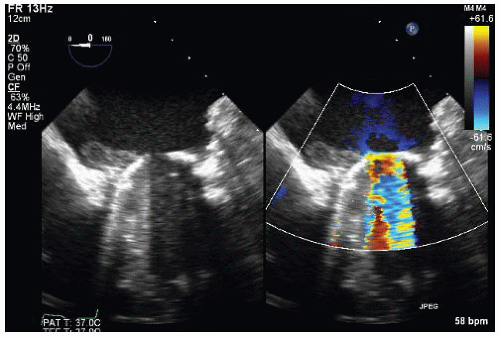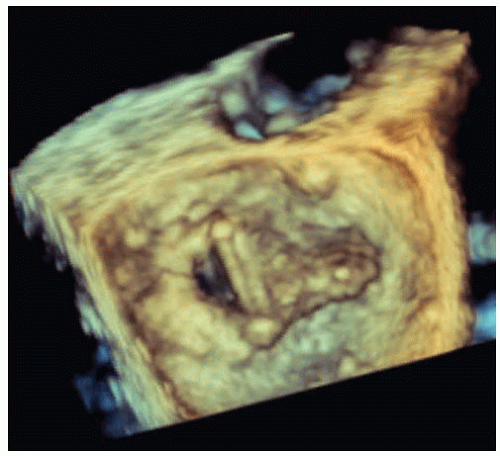Mitral Valve Replacement with Anticoagulation Therapy
A 69-year-old woman has a history of mitral stenosis, chronic atrial fibrillation, and a past mitral valve commissurotomy in Russia.
She subsequently underwent mitral valve replacement and was treated with anticoagulation therapy.
The patient presented to the emergency room with dysuria and polyuria. She was discharged home the same day. Two days later, the patient came back to the emergency room because of slurred speech, which lasted for approximately 1 hour.
Upon physical examination, the patient was unarousable. Pulse was 110 beats per minute (irregularly irregular, atrial fibrillation) and blood pressure was 135/90 mm Hg. There was no jugular venous distention. There were normal heart sounds over precordium with a very clear prosthetic first sound audible. There was no diastolic murmur. Her lungs were clear to auscultation and percussion, and there was no peripheral edema noted.
QUESTION 1. Based on her transesophageal echocardiogram (TEE) shown in Figures 58-1, 58-2, 58-3 and 58-4 and Videos 58-1 to 58-3, what is the most likely cause of her slurred speech?
Stay updated, free articles. Join our Telegram channel

Full access? Get Clinical Tree






